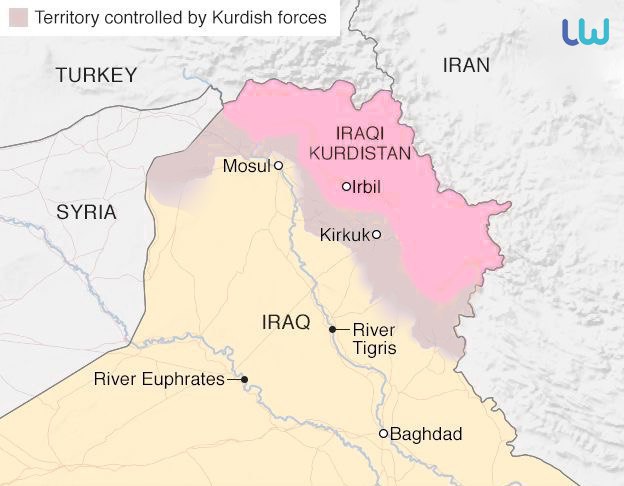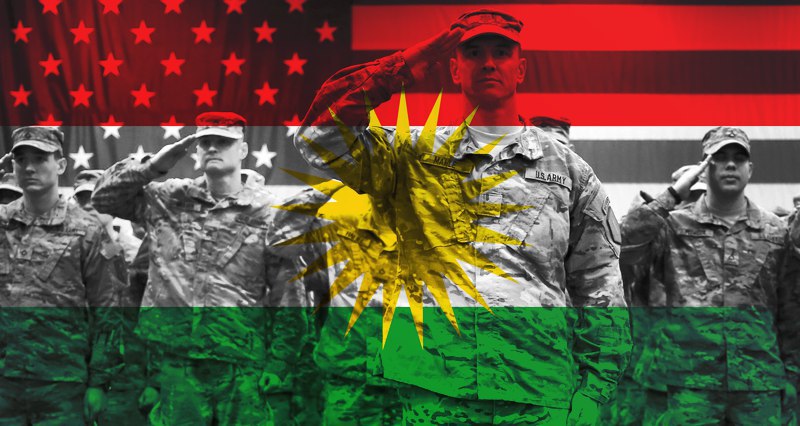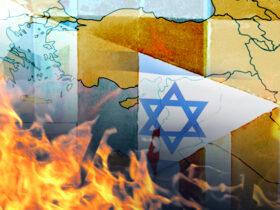By Diyari Salih
On January 5, 2020, the Iraqi parliament decided to remove all foreign troops from Iraq, including the American ones. Many Shia military groups threatened to use violence against those who opposed the plan. They also forced the new Iraqi prime minister, Mustafa al-Kadima, to commit to the decision. This will cast a shadow on the next phases of the Iraqi-American strategic dialogue. If Baghdad and Washington do not reach a proper deal, the Kurdistan Region of Iraq (KRI), as the media has reported, will host American forces in its military bases.
This scenario would mean that Iraq will suffer a new internal crisis. To contain the Kurds, Shia hardliners will issue a new legislative resolution to force the Americans to leave the bases located in KRI. The Iraqi parliament will be an arena of conflict between Shia and Kurds.
Shia parties will also accuse the Kurds and the Americans of conspiracy against the Iraqi state. Therefore, they will work with Iran to exercise different geopolitical tactics to threaten KRI.
The Kurds might be in a real deadlock. They know well that Baghdad might impose more economic and financial punishments on them. This will lead to the destabilization of their region as people will not tolerate the Kurdish leaders if they fail in ensuring the salaries of public officials. In other words, this will put the future of the social and political stability of the KRI at risk.

Consequently, the sense of fraternity between Arabs and Kurds will be damaged. This will influence their mutual interactions in the ethnically mixed cities. Ethnic tensions will rise, and revenge will be taken.
Furthermore, the policies of demographic change will be widely applied to create new geographic realities. We have a completely militarized society that tends to use violence to settle its simplest problems. Thus, many victims will pay the cost of such dramatic turns.
It is expected that the KRI will face more economic setbacks if Baghdad tries to isolate the Kurds geopolitically. For example, Baghdad can work to end its dependence on the Kirkuk-Ceyhan pipeline which goes through the KRI to export oil to Turkey.
This will prevent the Kurds from capitalizing on their geographically important role as a territorial bridge connecting between Turkey and Iraq. Instead, Iraq can send its oil by tankers, as it was doing before, to Iran. This will result in weakening the function of the KRI in Turkish economic policy. As a result, Turkey might change its view towards the future of its relations with the KRI.
All of this will create a breeding ground for the resurgence of the Islamic State. Historically, ISIS was able to exploit the disagreements between Baghdad-Erbil and Tehran-Washington to intensify its presence in Iraq. In this way, it managed to control Mosul and 40% of Iraqi lands in 2014.
Returning the same circumstances means that a new strategic vacuum will be formed around KRI, and ISIS knows well how to fill such geographic vacuums.
It is assumed that ISIS will try to benefit from this back and forth by all available means. This time, the KRI will be a theater for a complicated contest, and its security will be in real danger.
In this case, the conflict between the Popular Mobilization Units and the Kurdish Peshmerga forces will be unavoidable. This military stand-off will erupt in the places surrounding the KRI, such as in Mosul, Kirkuk, and Diyala provinces.
Accordingly, the population of these cities will also be changed. Unlike the sectarian fight that engulfed Iraq in 2006, this new phase of the war will be largely based on the ethnic factors and will be a cause for an extra wave of regional polarization in Iraq.
Such tension has been seen on many different occasions. We fear that it might evolve into a long war between these groups. This might also affect the social security of Syria, Turkey, and Iran.
In this regard, it seems that the US is caught in the Iraqi geopolitical scene. It can’t afford the tremendous cost of staying in Iraq nor is it ready for a complete departure since this will be interpreted as a big victory for Iran.
For the Americans, sending troops to the KRI’s military bases without real arrangements with Baghdad will not be a rational option. The unavoidable truth is that “if the US resorts to this decision, it will implicate its ally- the Kurds- in a lot of problems that can’t be solved easily”. The fragile balance in the KRI will not be able to hold up in the face of these developments.
From a military standpoint, many observers confirm that the US has lost Iraq; thus, it must now focus on how to preserve its security, political, and economic ties with the country. To establish stability and understanding between the sides, these strategic matters must be seriously discussed.
Diyari Salih is an Iraqi academic working at al-Mustansiriyah university. He holds a Ph.D. in Political Geography from the University of Baghdad and a Post-Doctorate in International Relations from the University of Warsaw. His research focuses on geopolitical issues in Iraq. He tweets at @DiyariFaily

















Leave a Reply